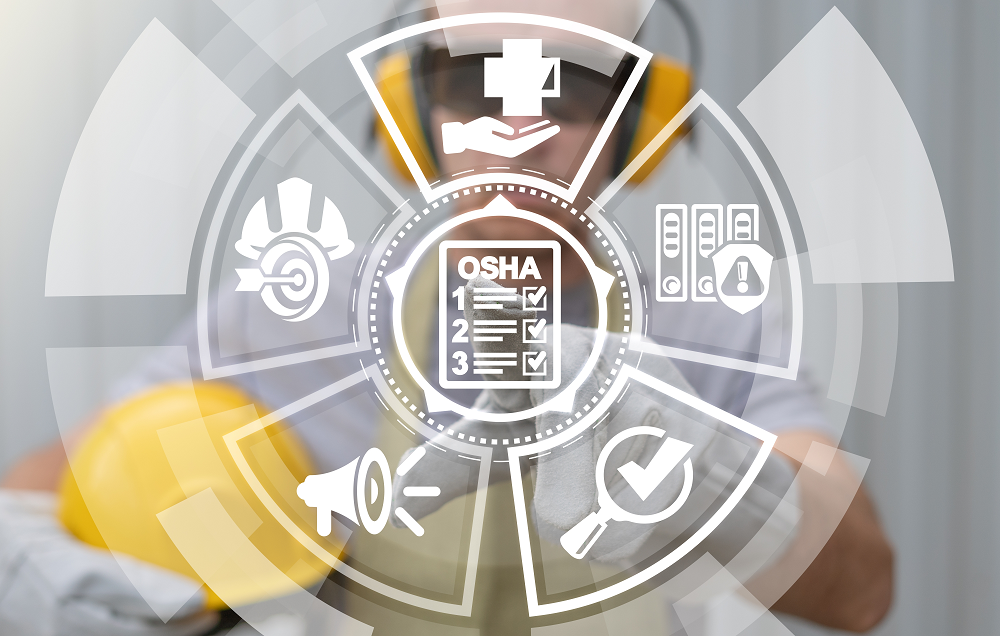Occupational Health at Georgia Tech
Workplace Occupational Health is an important issue for Georgia Tech and its employees. Scientific research and other work activities involving the use of chemical, biological, or radiological materials has the potential to expose employees to health hazards. These hazards can create both short-term and long-term health issues. Georgia Tech is strongly committed to protecting the health of all its employees through awareness, training, medical evaluations, engineering controls, and appropriate workplace protective measures.
Guiding Principles
Assessing Workplace Occupational Health Risks
Occupational health risks in the workplace can be very difficult to quantify or predict with certainty, and can vary significantly based on a number of different factors including:
- Type of hazard
- Dosage or intensity of its exposure
- Duration of the exposure
- Route of exposure
- Susceptibility of the individual
- Combined effects of multiple hazards
Georgia Tech EHS is responsible for working with departmental supervisors and employees to assess occupational exposure risks and recommend appropriate control measures.
All employees are responsible for following recommended work practices, using appropriate personal protective equipment (PPE), attending safety training programs and reporting any exposure incidents to their supervisor.
Types of Exposures
The exposures covered by this program are chemical, biological, radiological (both non-ionizing and ionizing) and other potential physical stressors that may impact occupational health. Within each exposure group, there are a number of identified potential health risks. Protective measures should be taken to avoid/minimize exposures.
- Examples of Chemical Exposures Associated with Workplace Health Risks:
- Heavy metals
- Pesticides
- Organic solvents
- Chemotherapeutic agents
- Anesthetic gases
- Examples of Biological Exposures Associated with Workplace Health Risks:
- Bacteria
- Viruses
- Toxins
- Molds
- Animals
- Examples of Ionizing Radiation Exposures Associated with Workplace Health Risks:
- Source Materials (C-14, H-3, P-32, Th-229, Ni-63, etc.)
- X-ray Units
- Analytical Instruments (electron microscopes, spectroscopy, etc.)
- Neutron Generators
- Examples of Non-Ionizing Radiation Exposures Associated with Workplace Health Risks:
- Lasers
- High Power Magnets
- Radio Frequency (RF) Radiation
- Microwave Radiation
- Ultra-Violet Light (from electric arcs or plasma generation)
- Examples of Other Physical Stressors Associated with Workplace Health Risks:
- Extreme Heat or Cold
- Noise
- Vibration
- Repetitive Motion
Departmental Supervisors
Departmental supervisors are responsible for ensuring that workplace health protective measures are in place, including ensuring that:
- Employees complete all appropriate safety training
- Appropriate PPE is worn.
- Individuals understand how to read the Safety Data Sheet (SDS) for all chemicals used in the laboratory to determine appropriate handling procedures and to determine if a chemical is a potential health hazard.
- Employees working with biological/infectious materials or animals are enrolled in Biosafety Occupational Health Program (BOHP).
- Visit the BOHP website for more information.
Procedures
Georgia Tech EHS performs workplace occupational hazard/risk assessments on an ongoing basis and works closely with faculty, staff or students who have any concerns or wish to discuss potential health risks associated with their work activities.
EHS will collect and evaluate information on exposures of concern to provide appropriate safety recommendations to protect the employee’s health in the workplace. These recommendations will be reviewed with the employees as well as the departmental supervisor, the Georgia Tech occupational health medical provider, and/or the Principal Investigator as needed. EHS will work with the department and the employee to implement the appropriate safety, exposure control, and health monitoring measures.
To have a job hazard analysis conducted or for additional information on enrollment in the Georgia Tech OHP, contact EHS at 404-894-4635.
